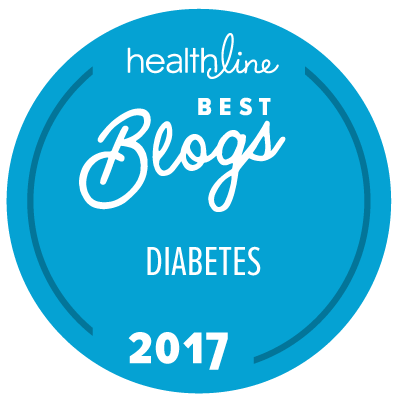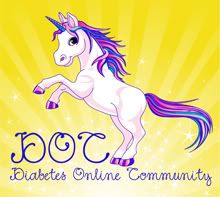 |
| Tangelos Pic courtesy of Wikipedia |
So I’m all about the vitamin C in the winter and I try and get mine through vitamins and you know, like actual whole foods.
I love pineapples, strawberries, oranges, broccoli and sweet peppers - All of which are high in the CVs.
My latest obsession is the Tangelo, an awesome citrus hybrid that’s juicy and sweet without causing massive blood sugar spikes!
So the other day at work when I was just about to break out my tangelo, I decided to be all types of a good and googled the nutrition facts for said tangelo so I could get an accurate carb count to bolus for.
So the other day at work when I was just about to break out my tangelo, I decided to be all types of a good and googled the nutrition facts for said tangelo so I could get an accurate carb count to bolus for.
And here’s where my freakout occurred.
According to Wikipedia, a tangelo is a hybrid between a tangerine or pomelo (grapefruit family) or an actual grapefruit.
Merriam-Webster defines a tangelo as a hybrid between a tangerine and or mandarin orange with a grapefruit.
Bottom line - The tangelos linage includes grapefuit.
For those of you on statins, (including me,) statins (think Lipitor, Zocor and Mevacor) or the blood thinner Plavix, (not a statin, but is definitely influenced by grapefruit) do not interact well with grapefruit and or grapefruit juice - and those of us on statins are advised not to eat them.
I LOVE Ruby-Red grapefruit - LOVE THEM. But I don’t eat them much anymore because I’m on a statin to protect my vascular system. Every once in a while (usually when I’m in the Sunshine State,) I brake my no grapefruit rule - and my Dr. is OK with that because those times are are few and far between
But back to the tangelo freakout. I’ve been eating one or two a day for like three weeks and I always assumed they were a tangerine orange hybrid, so when I found out that tangelos are a grapefruit hybrid, I freaked out.
Was I doing more harm to myself than good?
And how the hell could this label reading, high fructose syrup avoiding Chicklet make such a rookie mistake?!
Once again I googled “Tangelo medication interactions,” and according to The U. S. Department of Agriculture’s website: One tangerine/grapefruit hybrid (tangelos) contains trace amounts of furanocoumarins at a level too low to be associated with grapefruit/drug interactions.
And I have to admit I breathed a sigh of relief.
But my tangelo tribulations reminded that eating healthy while taking medications can be a challenge - and dangerous- And it requires us knowing all the ins and outs of what we ingest - even the healthy stuff.
For instance, ‘f you are licorice fiend (FYI: licorice is an herb) and you’re taking the heart drug digoxin, be careful because licorice can intensify digoxin’s toxicity.
And if you’re on an ACE- Inhibitor, be aware that licorice can limit ACE-Inhibitors effectiveness and can potentially cause a build up of potassium in your system.
If you’re on a blood thinner like Coumadin or Plavix, you can’t take Omega-3 Fish Oil Supplements like Krill Oil,
(Omega 3s are antioxidants with anti-inflammatory benefits) because they also have blood thinning affects.
And watch your ginger supplement intake because ginger (also an anti-inflammatory,) thins the blood as well.
(Omega 3s are antioxidants with anti-inflammatory benefits) because they also have blood thinning affects.
And watch your ginger supplement intake because ginger (also an anti-inflammatory,) thins the blood as well.
And did you know that drinking too much coffee can thin your blood?
Speaking of Coumadin - If you're taking Coumidin, vitamin K (think green, leafy veggies) are a big no- no.
Why? Because vitamin K is a coagulant and promotes blood clots, thus negating the whole ‘blood thinning’ benefits.
And if you’re on an antibiotic made with quinolones (like Cipro,) anything rich in calcium (milk, cheese) can mess with the body’s ability to absorb the antibiotics.
Quinolones also interfere with the body’s breakdown of coffee, which can lead to a rapid heartbeat.
Same goes for anti-anxiety & asthma meds.
So is it a pain in the ass to check what foods interact with your medications? Yeah, totally.
But is it necessary and potentially life saving? Damn right it is!
So have you ever been shocked to find out about a negative drug/ food and or supplement interaction?
Do you know of any food/ drug interactions that surprised you or that might surprise others?
Do you know of any food/ drug interactions that surprised you or that might surprise others?
If so, feel free to post the info - We need to know!





























3 comments:
I started statins about 8 or so months ago and was a regular grapefruit-a-day eater. It was almost ritualistic the way I would eat them like an orange in a way.
Then a friend referred me to an article and I nearly lost my shit. What? grapefruit is healthy, how can it be so bad?
I was saddened and now I have dreams of grapefruit :(
It was the statin-grapefruit interaction that got me. I still run into statin users who don't know anything about it, though it's in the drug interaction documentation that comes with your prescription.
I didn't know about the coumadin-vitamin K thing. And no omega-3s? That's gotta make for a tough diet. Thanks for sharing.
I'm sure there are lots who are very helpful, I feel like pharmacists -as a profession- could be doing more along these lines. Somewhere between FDA-mandated information and gossip must lie a middle ground of helping a patient know what they need to know about a new-to-them medication. (A good example was the pharmacist who warned me not to take my first dose of diuretic blood pressure medicine before bed.) I've been known to ask a pharmacist, "Of all these -possible- side effects of this, which ones are most likely?" It seems to me that known food interactions are as important as known drug interactions.
Post a Comment